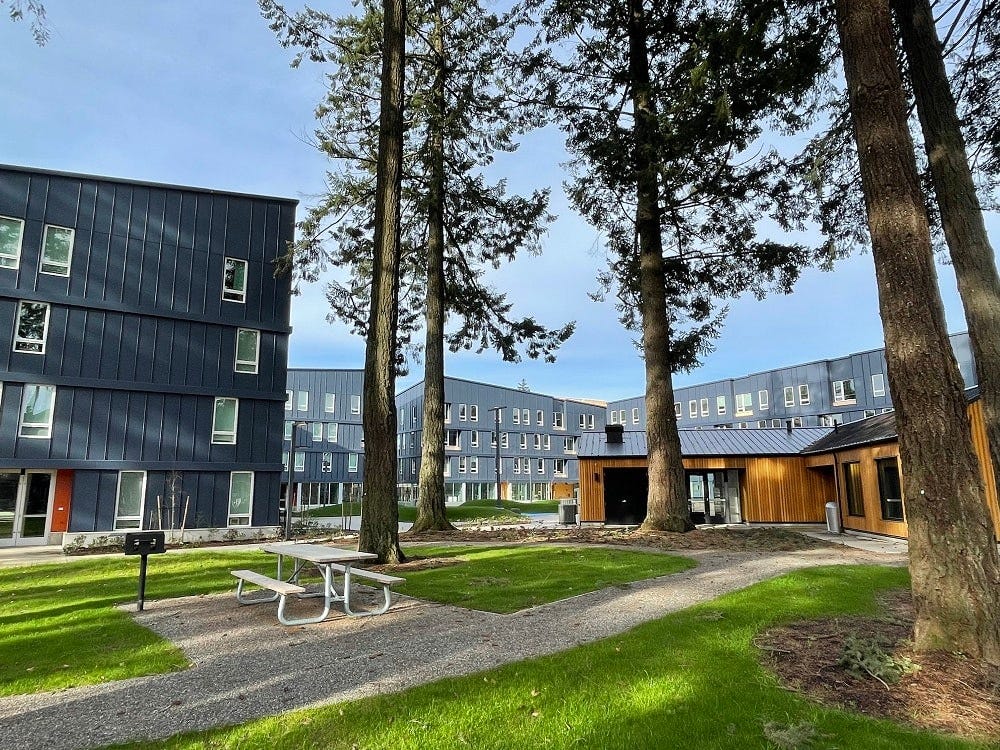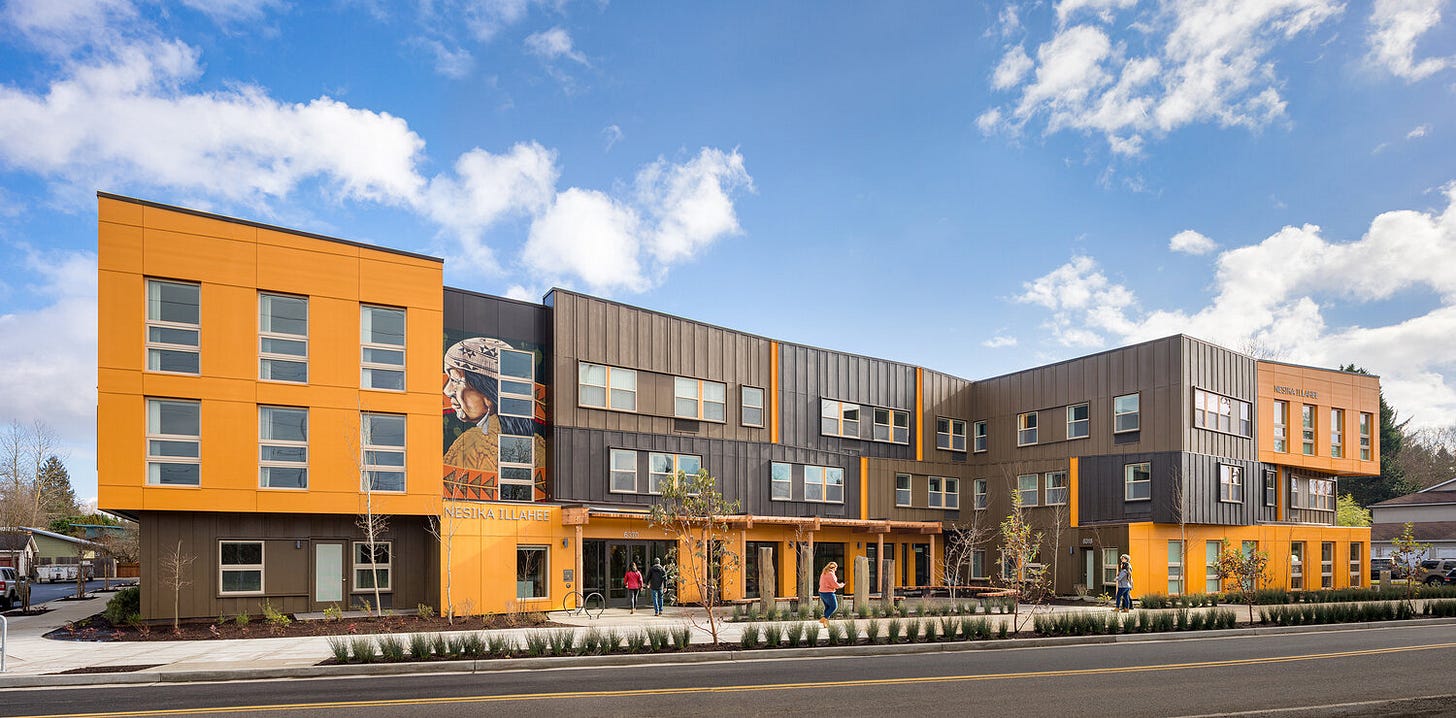Building on Success
The Future of Affordable Housing in Oregon
Oregonians have come to realize the severity of our housing crisis, but still search for solutions. The discussion on the Oregon Way about how to address our state’s affordable housing needs has been a robust showcase of different viewpoints. These underscore both the opportunities and challenges of increasing our state’s affordable housing supply. As the CEO of Community Development Partners (CDP), a Portland-based affordable multifamily and mixed-use developer dedicated to creating and preserving vibrant and affordable housing communities, I am thankful for the opportunity to share our perspective.
First, a bit about us. CDP is a certified B-corporation dedicated to the highest standards of social and environmental stewardship, public transparency, and legal accountability. This reflects our dedication to the development of life-enhancing affordable housing and our prioritization of impacts over profit. CDP developments are focused on enhancing whole neighborhoods by incorporating public spaces, cultural and social programming, and robust on-site services from local community partners into their projects. The CDP team has developed 27 unique communities comprising 2,000 units across Oregon, California, Arizona, and Nevada. While there is no panacea that can fix the affordable housing crisis, we believe our approach can offer some useful insights for decision makers at every level.
We believe we can provide necessary assistance/shelter for the unhoused and accelerate the supply of new housing through the following steps.
Increase supply of shelter beds as well as rapid re-housing options to move people off the streets.
Provide mental health resources for unhoused and for those in temporary housing.
Improve the development process to increase creation of permanent supportive housing (PSH).
o Increase the land zoned appropriately.
o Accelerate permitting review.
o Address regulation that deters investment.
o Ensure continued dedicated funding sources for regulated affordable housing that can serve the most vulnerable families (e.g. OHCS, Metro Housing Bond, PHB).
o Deploy the funding in an expedient manner to shorten the timeline between funding source creation and delivery of homes.
For the formerly houseless, provide long term rental assistance and build a more robust network of service resources and funding for mental health needs.
In the long term, we believe that affordable housing development must not only provide high quality housing, but also create a sense of place for residents that enhances the fabric of the overall community. We work with like-minded non-profit organizations by sharing our development and financial capacities to help realize housing goals for specific income or demographic populations. We focus on the integration of the arts community by incorporating artwork and ongoing art programming into resident services through partnerships with local artists. The results of this approach are housing developments that benefit the entire community and that bring pride to residents and neighbors alike.
Two local projects highlight the success of our approach.
Nesika Illahee (Portland) – Nesika Illahee is a 3-story wood-framed building comprised of 59 units developed in partnership with NAYA (Native American Youth and Family Center), NARA (Native American Rehabilitation Association), and the Confederated Tribes of Siletz Indians (Siletz). The project focuses on the needs of the Native community, which suffers disproportionately from poverty. The project goals are to address disparities in access to affordable housing for Native American families, provide culturally specific services to residents, and provide medical, dental, and behavioral health care for all residents. Nesika Illahee was the first project in the U.S. to utilize Indian Housing Block Grant (IHGB) funding to construct affordable housing in an off-reservation urban setting. All of the units are reserved for households earning 60% or less AMI, and 34% (20 units) are reserved specifically for Siletz tribal members.
Rockwood Village (Gresham) – Rockwood Village is co-owned and was co-developed by CDP and Hacienda CDC, Oregon’s largest Latino-led, Latino-serving housing organization. The community is in the heart of the Rockwood neighborhood in Gresham. It is comprised of six buildings and 224 units of affordable and workforce apartment homes, available to individuals and households earning 30%-70% AMI. Rockwood Village includes a centralized community building, known as the Mosaico Room, where programs and services are offered; a new public park with natural areas and meandering paths designed for the entire Rockwood community; and an urban farm that is operated and programmed by Mudbone Grown, a Black-owned farm enterprise promoting intergenerational community-based farming. Hacienda CDC will offer vital resources to educate and engage youth, assist families with economic opportunity and entrepreneurship, and activate the park and community room. Rockwood Village was the first Metro Housing Bond-funded project to move in residents and was also the first affordable housing development in Oregon to implement the IRS’ new Income Averaging guidelines for affordable housing, meaning development-wide the project achieves an average AMI of 60% (approximately $58,020 for a family of four).
Those are but two examples that express our belief that affordable housing development should combine values and design. We believe affordable housing developments can be activated centers of culture and education for the surrounding community in addition to fulfilling the basic housing needs of our residents. We remain dedicated to working within our industry and with policy makers to continue to put our beliefs into practice.
Eric Payne is the CEO of Community Development Partners.




